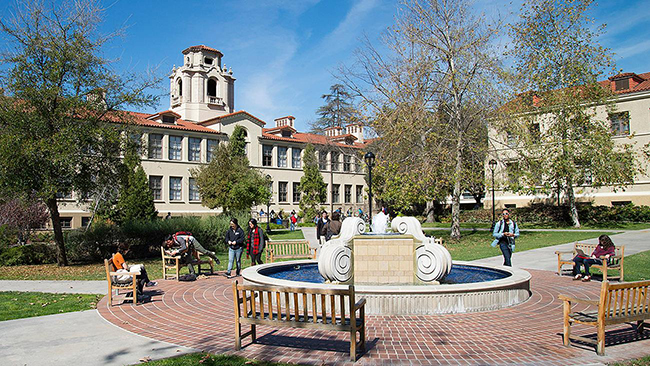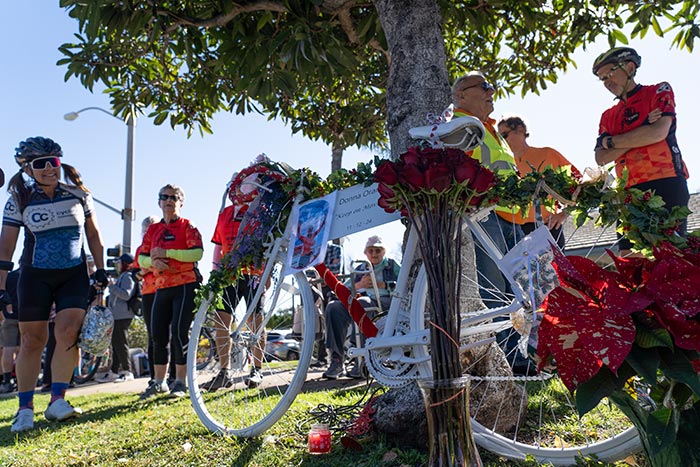Tempers flare as council meeting heats up over marijuana
Progress reports on multi-housing crime abatement and sustainability and a fiery public comment session on the city’s new marijuana ordinance highlighted the Claremont City Council meeting on January 26.
The marijuana ordinance, which bans the sale, cultivation, receipt and delivery of marijuana except among those who have a proper medical card, was passed during the previous council meeting on January 12 and placed in the consent calendar for a required second reading Tuesday, but that did not stop a number of marijuana advocates as well as detractors from voicing their opinions on the matter during public comment.
Mark Ramos, head of the United Food and Commercial Workers (UFCW) chapter in Claremont, noted that an amendment that erased the March 1 deadline to pass local initiatives regarding marijuana—which was admitted as a mistake by the author of the bill, Assemblyman Jim Wood—was passed by the State Senate on Monday, January 25 and urged the council to delay enacting the ordinance.
During discussion, City Manager Tony Ramos claimed the city needed to pass the ordinance in case the correction doesn’t arrive at the governor’s desk in time.
One commenter, Darrell Kruse, complained to the council about his medical marijuana business that was shuttered in 2006, slamming his palms on the dais and accusing the council and City Attorney Sonia Carvalho (who was not present) of giving him a raw deal. Mr. Kruse spoke well over his four-minute allotted time, and as he argued with the council, Claremont Police Chief Paul Cooper and Captain Shelley Vander Veen got up and stood behind him, ready to force Mr. Kruse from the dais if need be.
“If you have any questions about the genesis of marijuana prohibition, please just Google ‘all Mexicans are crazy.’ Google it.” Mr. Kruse said before leaving the dais.
Mr. Kruse was referring to the words of a Texas senator who, in the 1930s, advanced an anti-marijuana bill on the grounds that Mexicans were particularly vulnerable to the drug’s unsettling effects.
The council didn’t mince words during discussion of the ordinance. Councilmember Larry Schroeder said the ordinance does not affect medical marijuana users who have proper documentation.
“We have to remember we are not talking about recreational marijuana right now,” Mr. Schroeder said. “As we made perfectly clear tonight, and I’ll say it again, we are not banning the use of medical marijuana in this town. We are not banning the growing of marijuana for medical use…and that’s what this ordinance does today.”
During a five-minute recess, Mr. Kruse, who has a history of provocation in the council chamber, cornered Mr. Schroeder and asked if the councilman was racist. Mr. Schroeder immediately responded, “Excuse me sir, no I am not,” before returning to the council bench.
Later, Mr. Kruse said to Ellen Taylor, “I want to get in a fight with them. I want to tear them apart,” before leaving the council chamber.
Sustainable Claremont funding
Topping the agenda was a presentation by Sustainable Claremont on the progress the growing organization has accomplished in recent years. Sustainable Claremont chair Steve Sabicer was on hand, as well as more than 40 members and supporters overflowed the council chamber.
“Sustainability is understanding scarcity of resources,” Mr. Sabicer said. “We have finite resources on this planet, in this community, in our homes. Our focus is hopefully to find ways to work together and collaboratively address those resources.”
Mr. Sabicer outlines the group’s considerable growth between July 2014 and January 2016, including the creation of a “Green Hub” community resource center; winning $22,500 from the Cool California Challenge in 2014; and the creation of water-wise DRIP programs that attracted over 1,000 attendees, 90 sustainability events and 50 workshops and community events.
Mr. Sabicer pointed out that Claremont is far in the lead in the Cool California Challenge, a statewide challenge that pits cities against each other to see who can most reduce their carbon footprint. The challenge ends on March 30.
The presentation also included a humorous video for the Cool California Challenge starring Mayor Corey Calaycay, in which he rallies fellow Claremonters to save energy and win the challenge.
At the end of the presentation, Mr. Sabicer asked the council to continue Sustainable Claremont’s annual funding of $25,000 through Summer 2019. “At that level, that will give us the runway we need to achieve great things as an organization,” he said.
Police chief gives crime report
Also on the city council agenda was an update on the crime–free multi-housing program initiated by the city in 2009. Mr. Cooper was on hand to present the update, which covers apartment complexes throughout town and analyzes different crime rates for each property.
Chief Cooper was happy to report that the 2015 numbers point to an overall decline in crime in the six years since the project began. For instance, in 2015 the number of police reports for part 1 crimes and vandalism was 3.95 percent per unit, down from 8.32 percent in 2009.
When divided into two sections, police reports for crime and vandalism were at 8.42 percent per unit for south Claremont in 2015, down from 17.58 percent per unit in 2009. In north Claremont, the percentage fell from 3.82 percent per unit in 2009 to 1.92 percent per unit in 2015.
Jim Keith, the head of the Committee for Safe and Healthy Housing, established in 2006 to reduce criminal activity in multi-family housing complexes, lauded the update, but said more needs to be done.
“Eighty percent of crimes that occurred in 2015 were related to vehicles,” Mr. Keith said. “So if this means if we can solve that issue—how to protect vehicles, how to train people to not leave attractive things visible or leave car doors open—we can continue to drive this down.”
Councilmember Joe Lyons praised the reduction in crime as a sign that the efforts of committees and police are working, to which Mr. Pedroza concurred.
“I think this is one of those Claremont groups that is successful and it accomplishing its mission,” Mr. Pedroza said. “And I appreciate our police department being a major player in this effort.”
The council also allocated the city’s Community Development Block Grant (CDBG) funds, which aim to provide funds to cities and counties to benefit low-income people and programs.
The budget, totaling $132,818, will be divvied up between three projects or programs—The Housing Rehabilitation Program ($60,000), the Senior Case Management Program ($19,922) and the Job Creation & Business Incentive Grant Program ($52,896). The next city council meeting is scheduled for February 9.
—Matthew Bramlett
news@claremont-courier.com










0 Comments